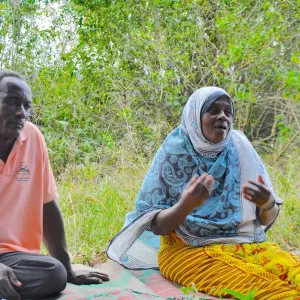Introducing a new dyadic interview tool for exploring intra-household decision making
Steven Cole, Catherine Njuguna and Devis Mwakanyamale on learnings from piloting the tool in Tanzania. Women’s involvement in making important intra-household decisions is a key indicator of their empowerment. Most of the quantitative tools available to measure women’s empowerment try to elicit this involvement by asking which decisions spouses make alone or jointly, and if the latter, to what extent

Introducing a new dyadic interview tool for exploring intra-household decision making
Steven Cole, Catherine Njuguna and Devis Mwakanyamale on learnings from piloting the tool in Tanzania.
Women’s involvement in making important intra-household decisions is a key indicator of their empowerment. Most of the quantitative tools available to measure women’s empowerment try to elicit this involvement by asking which decisions spouses make alone or jointly, and if the latter, to what extent each spouse has a say.
Recent studies highlight the importance of interviewing both spouses (as opposed to either a wife or a husband), since their responses to the same questions often differ (Twyman et al. 2015; Anderson et al. 2017; Ambler et al. 2017).
Beyond who makes decisions, it is also necessary to understand how and why intra-household decision-making processes unfold the way they do. Far fewer studies exist on these topics (see Acosta et al. 2019 and Bernard et al. 2020 for two good ones).
Qualitative tools are viewed as being better able to uncover how and why intra-household decisions are made. Still, qualitative studies often use focus group discussions or semi-structured interviews to explore these matters, overlooking opportunities for interviewing spouses together.
In our latest research, we designed and piloted a new qualitative tool – a dyadic interview guide – that brings spouses together to describe the process and rationale they use to make different kinds of decisions within their household.

